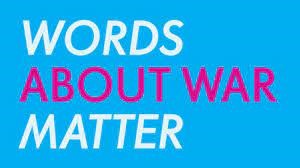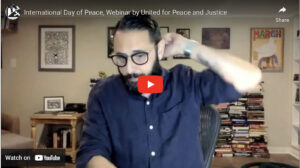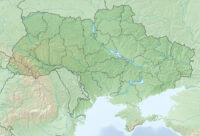Defenceless villages are bombarded from the air, the inhabitants driven out into the countryside, the cattle machine-gunned, the huts set on fire with incendiary bullets: this is called pacification. Millions of peasants are robbed of their farms and sent trudging along the roads with no more than they can carry: this is called transfer of population or rectification of frontiers. People are imprisoned for years without trial, or shot in the back of the neck or sent to die of scurvy in Arctic lumber camps: this is called elimination of unreliable elements. Such phraseology is needed if one wants to name things without calling up mental pictures of them.
– George Orwell, “Politics and the English Language,” 1946
Language influences our culture and the narratives that shape behavior and practices.
Words about War Matter is an initiative to revise the way the media, our partners, and those of us focused on ending war and deconstructing the military industrial complex describe warfare so that the language used does not further promote War and disappear the consequences of State violence.
A group of activists, scholars, and organizers wrote the “Words about War Matter” Language Guide for practitioners and the media to help people describe armed conflicts honestly and accurately. The guide seeks to ensure that War’s full story is told and to avoid people making assumptions that accept the worst aspects of War as standard, ordinary, or acceptable.
Recently the group working on this project generated a specific set of recommendations around Gaza. Here are 10 urgent suggestions to keep in mind when speaking about Gaza. These can be used by all who are working to end militarism and the ongoing conflicts that are pushing us closer to endless, escalating War.
- Don’t repeat talk of barbarism, savagery, or animals.
It’s racist and Islamophobic.2. Don’t conflate a government with a people.
Don’t talk about Palestinians or Israelis as homogenous groups.3. Don’t use terrorism or terrorists.
The terms have no clear definitions, have Islamophobic connotations, and do not get applied to the terror of states. Name the actions of groups using violence. Use: acts of mass violence, attacks on civilians, militants, and the names of armed groups.4. Killed, murdered, or dead?
Many describe Palestinians as dead while Israelis are killed, murdered, massacred (“1,200 Israelis killed; 25,000 dead in Gaza”). Dead/deaths erases responsibility for killing. War is killing, war is murder.5. Don’t use language that humanizes some and dehumanizes others.
Don’t say “Hamas killed Israeli children & families” but “the Israeli military killed Palestinian civilians.”6. Don’t use sports metaphors.
War is not sport. There are no “teams.” Sports metaphors hide war’s human damage.7. Always critique government talking points justifying violence.
Government words are usually spin or propaganda–“the defence of the indefensible,” as George Orwell said.8. Don’t use surgical or precision strikes.
War is never surgical, hygienic, or clean.9. Avoid passive verbs (were killed, were murdered).
Say who is doing what, who is killing whom. “The Israeli military killed Palestinians… Hamas fighters killed Israelis.”10. Naming matters. Think carefully about what to call the violence.
UN officials, legal advocacy groups, and international law scholars decidedly agree that this is a Genocide, defined as “acts committed with intent to destroy, in whole or in part, a national, ethnical, racial or religious group.”Terms such as war and conflict obscure who is responsible for the genocide and the scope of the destruction. If using the term humanitarian crisis, be clear that the Israeli government bears responsibility for creating it through its genocide of Palestinians.



